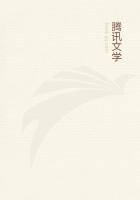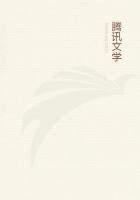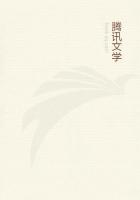An hour after I had left Castel-Nuovo, the atmosphere being calm and the sky clear, I perceived on my right, and within ten paces of me, a pyramidal flame about two feet long and four or five feet above the ground. This apparition surprised me, because it seemed to accompany me. Anxious to examine it, I endeavoured to get nearer to it, but the more I advanced towards it the further it went from me. It would stop when I stood still, and when the road along which I was travelling happened to be lined with trees, I no longer saw it, but it was sure to reappear as soon as I reached a portion of the road without trees. I several times retraced my steps purposely, but, every time I did so, the flame disappeared, and would not shew itself again until I proceeded towards Rome. This extraordinary beacon left me when daylight chased darkness from the sky.
What a splendid field for ignorant superstition, if there had been any witnesses to that phenomenon, and if I had chanced to make a great name in Rome! History is full of such trifles, and the world is full of people who attach great importance to them in spite of the so-called light of science. I must candidly confess that, although somewhat versed in physics, the sight of that small meteor gave me singular ideas. But I was prudent enough not to mention the circumstance to any one.
When I reached the ancient capital of the world, I possessed only seven paoli, and consequently I did not loiter about. I paid no attention to the splendid entrance through the gate of the polar trees, which is by mistake pompously called of the people, or to the beautiful square of the same name, or to the portals of the magnificent churches, or to all the stately buildings which generally strike the traveller as he enters the city. I went straight towards Monte-Magnanopoli, where, according to the address given to me, I was to find the bishop. There I was informed that he had left Rome ten days before, leaving instructions to send me to Naples free of expense. A coach was to start for Naples the next day; not caring to see Rome, I went to bed until the time for the departure of the coach. I travelled with three low fellows to whom I did not address one word through the whole of the journey. I entered Naples on the 6th day of September.
I went immediately to the address which had been given to me in Rome;
the bishop was not there. I called at the Convent of the Minims, and I found that he had left Naples to proceed to Martorano. I enquired whether he had left any instructions for me, but all in vain, no one could give me any information. And there I was, alone in a large city, without a friend, with eight carlini in my pocket, and not knowing what to do! But never mind; fate calls me to Martorano, and to Martorano I must go. The distance, after all, is only two hundred miles.
I found several drivers starting for Cosenza, but when they heard that I had no luggage, they refused to take me, unless I paid in advance. They were quite right, but their prudence placed me under the necessity of going on foot. Yet I felt I must reach Martorano, and I made up my mind to walk the distance, begging food and lodging like the very reverend Brother Stephano.
First of all I made a light meal for one fourth of my money, and, having been informed that I had to follow the Salerno road, I went towards Portici where I arrived in an hour and a half. I already felt rather fatigued; my legs, if not my head, took me to an inn, where I ordered a room and some supper. I was served in good style, my appetite was excellent, and I passed a quiet night in a comfortable bed. In the morning I told the inn-keeper that I would return for my dinner, and I went out to visit the royal palace. As I
passed through the gate, I was met by a man of prepossessing appearance, dressed in the eastern fashion, who offered to shew me all over the palace, saying that I would thus save my money. I was in a position to accept any offer; I thanked him for his kindness.
Happening during the conversation to state that I was a Venetian, he told me that he was my subject, since he came from Zante. I
acknowledged his polite compliment with a reverence.
"I have," he said, "some very excellent muscatel wine 'grown in the East, which I could sell you cheap."
"I might buy some, but I warn you I am a good judge."
"So much the better. Which do you prefer?"
"The Cerigo wine."
"You are right. I have some rare Cerigo muscatel, and we can taste it if you have no objection to dine with me."
"None whatever."
"I can likewise give you the wines of Samos and Cephalonia. I have also a quantity of minerals, plenty of vitriol, cinnabar, antimony, and one hundred quintals of mercury."
"Are all these goods here?"
"No, they are in Naples. Here I have only the muscatel wine and the mercury."
It is quite naturally and without any intention to deceive, that a young man accustomed to poverty, and ashamed of it when he speaks to a rich stranger, boasts of his means--of his fortune. As I was talking with my new acquaintance, I recollected an amalgam of mercury with lead and bismuth, by which the mercury increases one-fourth in weight. I said nothing, but I bethought myself that if the mystery should be unknown to the Greek I might profit by it. I felt that some cunning was necessary, and that he would not care for my secret if I proposed to sell it to him without preparing the way. The best plan was to astonish my man with the miracle of the augmentation of the mercury, treat it as a jest, and see what his intentions would be. Cheating is a crime, but honest cunning may be considered as a species of prudence. True, it is a quality which is near akin to roguery; but that cannot be helped, and the man who, in time of need, does not know how to exercise his cunning nobly is a fool. The Greeks call this sort of wisdom Cerdaleophyon from the word cerdo;
fox, and it might be translated by foxdom if there were such a word in English.













